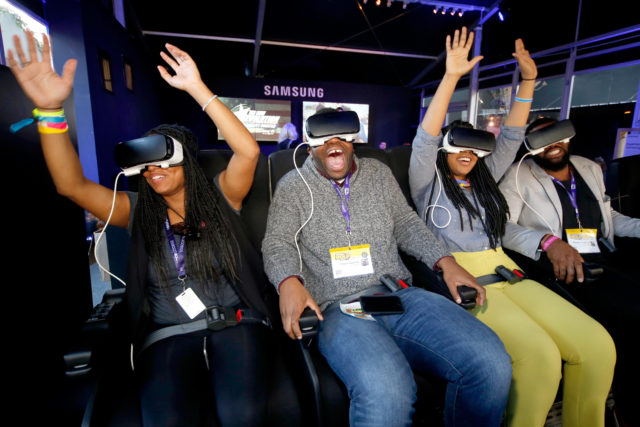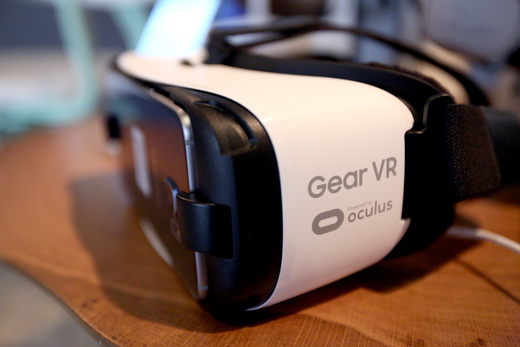Virtual reality, while still in its novelty stages, succeeds in wow factor but struggles with the idea of being social. Facebook hopes to change this at least in terms of group chat, but between cost and convenience, it’s not always possible for friends to experience VR as a group. While some amusement parks have already adopted this technology to enhance rides, China is leading the way with another method of public enjoyment—arcades.
China is currently experiencing a boom in the VR lounge/arcade industry, allowing consumers to try out the technology without investing in expensive hardware. EMAX, for example, hosts 179 VR kiosks across mainland China, South Korea and Taiwan. The Shenzhen-based startup makes its own headsets and software, opening retail shops for VR around the market. Currently, EMAX’s lounges do not offer VR games, but rather experiences like traveling through outer space.
VR Lounge, on the other hand, mimics the popular karaoke parlor business model by swapping microphones and songs for VR headsets and games. Customers sign up with a membership card and pay 100 yuan for a half-hour of play time. The company has even integrated its own user interface so that customers can select their own games, along with specially designed chairs to make certain games feel more immersive.

Arcades offer an alternative revenue source for hardware manufacturers, developers and of course, entrepreneurs. Analysts expect the market for virtual reality in China to grow to $8.5 billion by 2020, benefiting largely by the $1.1 billion global VR spending spree.
Last month HTC unveiled its Viveport Arcade system, creating a revenue-sharing marketplace for public entertainment centers to access the latest interactive titles. Pilot programs for Viveport Arcade have already been deployed in a number of locations over the last few months and according to HTC, will soon expand to hundreds of gaming centers, amusement parks and karaoke bars across the globe. The company even released its own Vive-branded VR cafe in Shenzhen, China last week.
“VR has found a home with Chinese players as the majority of the market do not have the capability to support home based VR and already are happy to play their PC games in LAN Game centers sometimes called PC Bang sites,” Rikard Steiber, president of Viveport and senior vice president of VR at HTC, told Polygon. “Amusement venues and location-based entertainment sites have also grown in popularity in the Asian Dragon market—so it was logical that VR Arcades would be embryonic within this incubator.”
While the idea of an arcade may not have been the original plan for virtual reality, it just might be the industry’s saving grace if consumers can’t or won’t bring the technology into their homes.
China, in particular, is more than happy to pay for group experiences, creating memories, and therefore establishing brand loyalty through nostalgia.

